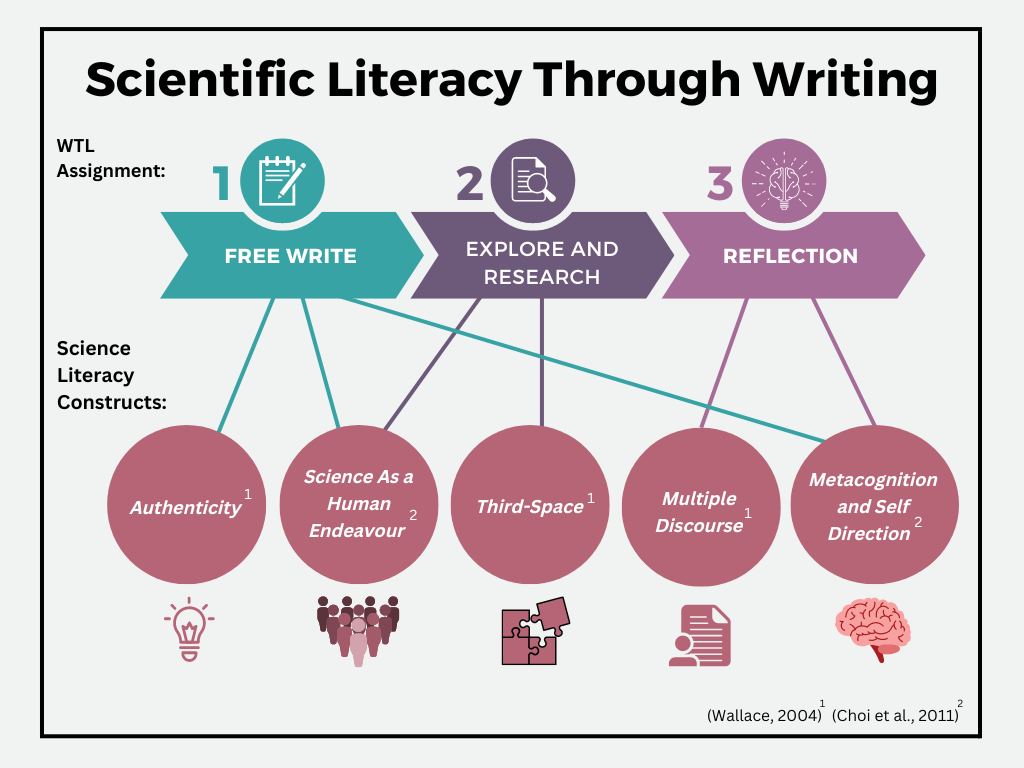
Write-to-learn (WTL) assignments have been used in a variety of disciplines to encourage conceptual learning and critical thinking in undergraduate education. These assignments focus on facilitating rather than assessing learning. Conversely, write-to-communicate (WTC) assignments (e.g., lab reports and exams), often with the goal of assessing learning, are more commonly employed in foundation STEM courses. We developed a WTL assignment that focuses on promoting curiosity driven learning, critical thinking, and metacognition; skills that promote students’ scientific literacy through writing. We integrated theoretical frameworks for scientific literacy, that include the sub-constructs of third space, authenticity, and multiple discourse as well as science as a human endeavour, and metacognition and self-direction (1, 2) to develop this 3-part WTL assignment. In this assignment, students first select a topic of interest and write freely on their current understanding of the topic (Part 1). They then develop a research question based on their writing and seek answers to their question from published literature (Part 2). Finally, they reflect on their overall experience with the WTL process and propose further avenues of investigation for their research topic (Part 3). Student feedback suggests that they enjoyed the WTL process and their overall satisfaction with the structure of the assignment was high. As we continue to evolve the assignment based on student feedback, we are gratified that students reported high self-efficacy with regard to future writing as a result of participating in this assignment. We recommend use of this type of WTL assignment in large, introductory STEM courses, so as to facilitate rather than simply assess students’ learning.
Primary Image: Scientific literacy through writing. Schematic depicting a write-to-learn assignment format implemented in an introductory undergraduate biology course, along with corresponding science literacy constructs.

Aviva Liebert onto Prof Comm
@
on